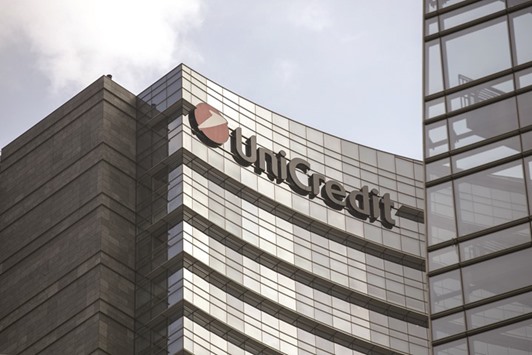UniCredit will consider tapping shareholders for cash, the Italian lender’s chairman said yesterday, conceding for the first time it may need to issue new shares to strengthen its balance sheet. Italy’s biggest bank by assets said on Monday it would conduct a strategic review of all its assets under new chief executive Jean-Pierre Mustier to try to improve profitability and its capital position.
On Tuesday, UniCredit sold minority stakes in two units for €1.1bn ($1.2bn) as the new boss moved swiftly on his first day in the job to beef up capital.
Analysts estimate potential capital needs at UniCredit of up to €10bn but former CEO Federico Ghizzoni had always denied the need to ask the market for more cash.
“We have to look at a capital increase because I don’t believe that the European Central Bank will be satisfied with what we’ve done (so far),” Giuseppe Vita told Reuters on the sidelines of an event in Rome.
“Either way, we need to give Mustier time to work as he’s just arrived.”
The bank’s transitional CET 1 ratio, a key measure of financial strength, stood at 10.5% at the end of March, just above a minimum requirement of 10% set by the ECB and well behind rival heavyweight Intesa Sanpaolo’s 12.9% level.
This week’s disposals — shedding 10% each of online broker FinecoBank and Polish unit Bank Pekao for a 0.2 percentage point boost to the CET 1 ratio — have reaffirmed market expectation that other asset sales and a cash call would follow quickly.
The bank’s shares have fallen more than 60% this year, weighed down by investor concerns over its profitability, a high pile of bad loans and a weaker balance sheet compared to major European rivals.
UniCredit shares rose 4.9% by 1244 GMT as the sector rallied on expectations that Monte dei Paschi di Siena could be close to offloading its bad loans in a multi-billion deal that would revive Italy’s non-performing loan market.
Unlike Spain or Ireland, Italy did not move to help its banks during the financial crisis, partly due to a public debt burden running at more than 1.3 times its output.
But when a three-year recession saddled Italian banks with €360bn in soured debts, the government found itself with little room for manoeuvre due to new and more stringent European rules on state support for ailing lenders.

The UniCredit bank headquarters office in Milan. On Tuesday, The bank’s transitional CET 1 ratio, a key measure of financial strength, stood at 10.5% at the end of March, just above a minimum requirement of 10% set by the ECB.
